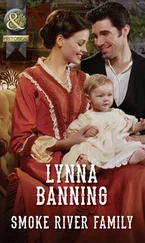“Black rain,” whispers Livia into his sudden silence. “Sebastian said he’s been dreaming of black rain. It’s monstrous, Mother.”
Lady Naylor stares back at her daughter and refuses to hang her head in shame.
ф
It’s Thomas who picks up the thread. A practical mind, his. He is not interested in fuses and chain reactions; the physics of Smoke. He wants to know what it would have done to the world. And to himself.
“An age of darkness, then, Lady Naylor. Britain drowning in self-perpetuating Smoke. Chaos; murder; villainy. I should have done well in this world, only I would have grown skinny like your son over there, too mad to remember eating. Perhaps there will be many of us, stumbling about, muttering gibberish, violence in our wakes. The Last Judgement, eh?” He stops, squats in front of Lady Naylor, stares into her disfigured face. “You must be very disappointed with the world to punish it thus.”
But milady simply shakes her head. “It wouldn’t have to be like that, Thomas. You misunderstand Smoke. No monsters. Just a people receiving passion, in all its many shades. A month of carnivals. The death of Discipline. The reinvention of God.”
Thomas scoffs, looks at the darkness of the pools behind him.
“No monsters? Not even one?”
Lady Naylor does something unexpected then. She cups Thomas’s face in the palm of her hand. He winces but does not recoil.
“Don’t live your life afraid of yourself, Thomas. You are a fine boy.”
“A fine boy? I killed your son, Lady Naylor. With my bare hands! Oh, he rose again, but I killed him all the same.” He swallows, shakes off her hand, straightens. “You don’t understand evil, milady. It runs in certain families. My father—”
Now it is her time to scoff. “Oh, enough! Sons and their fathers. How silly it all is! Forget your father. What was he? An irritable drunk. It’s your mother you take after. How little you think of her. She was one of us. A nonconformist. If not for her cancer she would have been standing here, giving me a hand.”
ф
They make preparations to leave. There is nothing else to be done. Lady Naylor is bleeding on the inside, her leg swelling to grotesque proportions, and a temperature now colouring her cheeks. It gives her an odd liveliness, both prophetic and diseased. Charlie casts around for something they can use as a stretcher, but the tabletop proves too heavy to lift and the chair too awkward. In the end he turns to Grendel, crooked-necked Grendel, Mowgli’s chin half buried in that crook. From the side, watching his little arms slung around Grendel’s shoulders, it looks like the boy is comforting him. But Grendel, Charlie reminds himself, requires no comfort: all this while he has been watching, impassive, untouched by events, like a butler awaiting orders. Now that Charlie waves to him, he rushes over without hesitation. Charlie has trouble looking at him, has noticed that Livia shares his revulsion, whilst Thomas stares at him with open disgust. Charlie keeps his eyes on the boy instead, but finds him illegible, beyond his understanding: a scrunched-up face, ugly and sallow, softening only for the stunted man who wishes to be his father. When Charlie finally speaks, he finds himself addressing the floor.
“We need your help, Grendel. Lady Naylor needs a doctor. We must carry her. Thomas has hurt his shoulder and we cannot lift her without help.” But before Grendel can respond or even nod, Charlie carries on, incoherently and haltingly, moved by his horror of this man. “I don’t understand it, Grendel. Why did you help her? Was it to win custody over a child you don’t know how to love? Or did she sell you her dream of a future that you cannot hope to share?”
Grendel considers this, his crooked neck tilting farther, his hand stroking the child’s back, gently and mechanically.
“I have a strange fate, Mr. Cooper. I stand apart. All my life I have wondered why. She told me there was a purpose in it, a way of giving it meaning.” He dares a shy smile. “It was naughty, wasn’t it, Mr. Cooper? Almost a sin.”
“Naughty?” Charlie echoes, no longer speaking to him but only to himself, picking through thoughts that, in tangled ways, connect Grendel to his father. “So that’s what it was. An angel playing at vice. But really you are on Renfrew’s side. The side of reason. He too would have shot Julius. And the other side? The other side would have bought off the witnesses and hushed up his crime.”
Grendel nods, uncomprehending, walks past him, adjusts the boy to ride on his back, and crouches down to gather Lady Naylor in his arms.
ф
Livia intervenes, won’t let him, is in no rush to release her mother from her pain. Instead she kneels, interposing her body between Grendel’s and Lady Naylor’s, daring him to interfere. Her hands take hold of her mother, not from solicitude, Charlie thinks, but to make sure of her attention.
“Before we go,” she begins, “while we are still in this cave of your dreams: explain it to me, Mother. ‘A month of carnivals.’ ‘The reinvention of God.’ Pardon me, Mother, but it’s gibberish. Explain it to me, your vision. You won’t have another chance.” A twist of Smoke darts from her breath as she speaks. Charlie stands close enough to take it into his blood. All at once it is clear what she is asking. Livia wants to know whether it is possible to forgive her mother; whether there are grounds for appeal. Charlie imagines a similar situation: his asking his father for an accounting. But he would merely frown and send Charlie to his room.
Not so Lady Naylor. She answers willingly, eagerly even, buoyed by her rising fever. It is as though she is speaking at her own tribunal, or on the executioner’s platform; as though the words are long prepared, different versions of the same speech, pouring out now all at once.
“The Smoke was never a problem,” she begins, haltingly yet, waiting for Charlie to fill her glass with wine. “It is simply who we are. What connects us, a thousand subtle threads of want and need. But for centuries now, we have been living a lie. The whole world has been living it, but we most especially, here on our little island, where we have made a devil of our Smoke. It shapes us, this lie: our relations, woman to woman, man to man; orders our polity; divorces us from any possibility of change.
“Power,” whispers Lady Naylor, “is underwritten by morality. Those who rule, rule because they are better people than their subjects. It’s written on our linen. It cannot be denied. Oh, you will say that it’s because we have sweets. That we are faking our virtue. But the lie goes deeper than that. We spend a lifetime training ourselves against Smoke. We go to school, are punished, learn to watch our words, our actions, our very thoughts. It turns us into nuns. Miserable, cold-blooded nuns. Trapped in our Discipline; capable of meanness, of judgement, of greed. But not of love.
“As for the ‘people,’ those we presume to rule because of the commonness of their sins, they are in awe of us. Oh, of course they make jokes about our manners, our fussiness, our mincing ways. There may even be small pockets of resistance. But who can watch the Smoke and deny it; see one person clean and the other mired in their messy desires; one regal and enjoying God’s good favour, rewarded for his goodness by his power and his wealth, and the other toiling and miserable, underfed, poor, his very skin scorched by diseases of bad hygiene — who can see all this and not feel the superiority of one and the inferiority of the other? It is as though two races walk our land, one blessed, the other cursed.
“And so it has served us to perjure Smoke, misrepresent it. Cigarettes and sweets, vice and virtue, black and white: what a crude vision of our lives! And yet, how powerful it has proven, how deeply it has grown into our souls so that we routinely reject what we apprehend with our senses, and defend our crude fiction even against our own interests if need be.
Читать дальше












